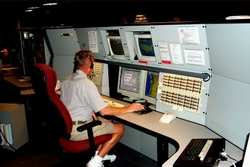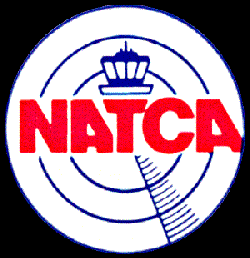New Perspective Yields Popular Result
 "Pitfalls of Air Traffic Control Privatization," a
research report released Thursday by Professor Elliott Sclar,
Columbia University, concludes that plans by the Bush
Administration to privatize the ATC system raise serious concerns
about cost savings and safety.
"Pitfalls of Air Traffic Control Privatization," a
research report released Thursday by Professor Elliott Sclar,
Columbia University, concludes that plans by the Bush
Administration to privatize the ATC system raise serious concerns
about cost savings and safety.
"Our research has led to one inescapable conclusion: privatizing
air traffic control won't work," said Professor Sclar, author of,
You Won't Always Get What You Pay For: The Economics of
Privatization.
"When it comes to air traffic control, the market-based
incentives of efficiency and economy that are supposed to motivate
a private provider do not easily align with the abiding interests
of government and passengers in safety and security," Sclar said.
He sums up his philosophy by revealing the theorem from which he
started: "It would be unwise to create an ATC system that puts
profits ahead of safety."
The professor joined others, like Sen Frank Lautenberg (D-NJ)
in opposing non-governmental authority, and added that
privatizing the existing system also raises security questions,
because "the air traffic control system must be under the firm
control of the federal government and able to respond
instantaneously and seamlessly." Sclar noted that on Sept. 11,
2001, it took only one call from the Department of Transportation
to ground the nation's commercial airlines quickly and safely.
"This is a government service that demands an extraordinarily high
degree of professionalism," he said.
 Sclar's research also concluded that privatizing ATC has been
"just short of disastrous" in countries that have tried it.
Specifically:
Sclar's research also concluded that privatizing ATC has been
"just short of disastrous" in countries that have tried it.
Specifically:
- In Britain, the semi-privatized National Air Traffic System has
been forced to go to the government for financial bailouts, valued
to date at two-thirds of the system's original sale price.
- In Australia, excessive demands on controllers have led to a
series of strikes, while failures with new technology have led to
actual radar blackouts and major traffic disruptions.
- In Canada, the semi-privatized system has led to massive
increases in user fees, and dangerous understaffing in towers. Nav
Canada, which oversees the country's air traffic control system,
expects to lose $80 million this year, and may consider hiking its
fee on airline tickets this spring -- the third such increase in
less than two years. "Nav Canada currently charges $24 on a
roundtrip ticket within Canada, on top of a $24 federal security
tax [recently reduced to $14(CDN)]" Sclar said. "Those amounts
would inspire outrage in the United States."
The Columbia University professor also said ATC privatization
flunks the "yellow pages" test -- a quick check of the phone book
to see if the private sector already has a competitive range of
companies in the desired sector. "There appears to be no shortage
of building maintenance firms and computer network designers,"
Sclar said. "But you won't find many listings for air traffic
controllers." That is, of course, true with any government-held
monopoly. Yellow Pages listings for "hydroelectric dam management"
and "first-class mail delivery services" are also rare.
Who funded the report?
 The study, commissioned by the National Air
Traffic Controllers Association, was performed with HDR's
Management Consulting Group of New York, one of the nation's
leading consultants on privatization of government services. Over
the past 25 years, HDR has helped privatize more than $20 billion
worth of government operations, ranging from fleet management to
health care.
The study, commissioned by the National Air
Traffic Controllers Association, was performed with HDR's
Management Consulting Group of New York, one of the nation's
leading consultants on privatization of government services. Over
the past 25 years, HDR has helped privatize more than $20 billion
worth of government operations, ranging from fleet management to
health care.
"We produced this research report because NATCA retained us to
conduct an expert, unbiased examination of privatization as it
pertains to their industry," said John Williams, National Director
of HDR's Management Consulting Group. "HDR has always accepted that
privatization is a solution to many government problems, but it's
not always the best solution or even the right solution."
Privatization has been in the news since the White House Office
of Management and Budget placed air traffic controllers on the
"commercial activity" list earlier this month, opening up the door
to privatization and prompting objections from the U.S. House and
Senate. Controllers are worried, among other things, that a
more-profit-oriented environment may reduce their pay and benefits,
and increase workload, much as they see happening now to
pilots.
 Airborne 10.14.25: Laser Threat, VeriJet BK, Duffy Threatens Problem Controllers
Airborne 10.14.25: Laser Threat, VeriJet BK, Duffy Threatens Problem Controllers Airborne 10.15.25: Phantom 3500 Confounds, Citation CJ3 Gen2 TC, True Blue Power
Airborne 10.15.25: Phantom 3500 Confounds, Citation CJ3 Gen2 TC, True Blue Power Aero-News: Quote of the Day (10.17.25)
Aero-News: Quote of the Day (10.17.25) NTSB Prelim: Piper PA-28-180
NTSB Prelim: Piper PA-28-180 ANN FAQ: Contributing To Aero-TV
ANN FAQ: Contributing To Aero-TV





